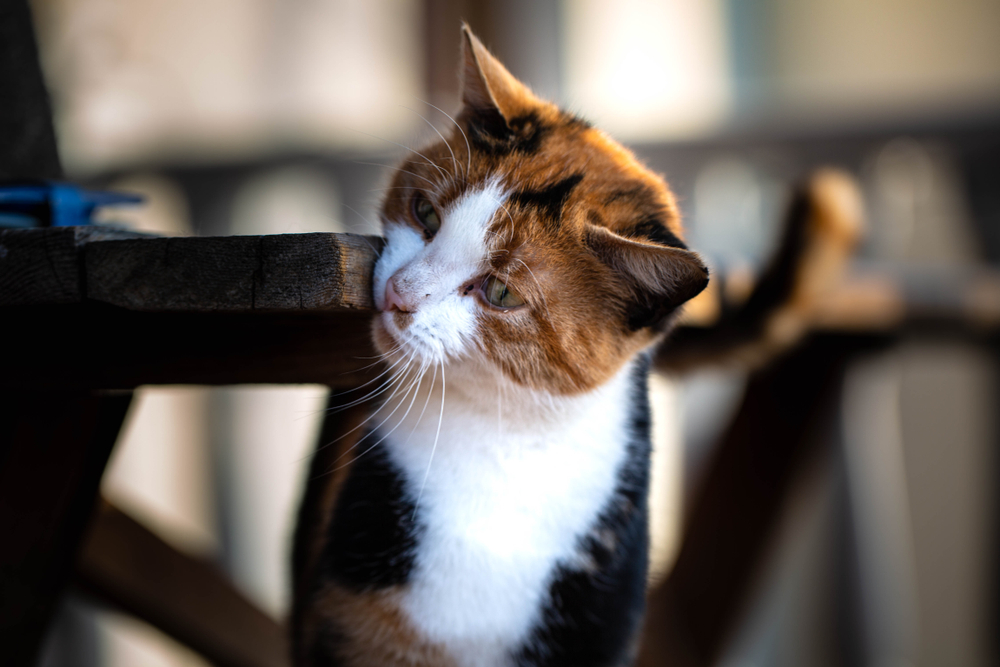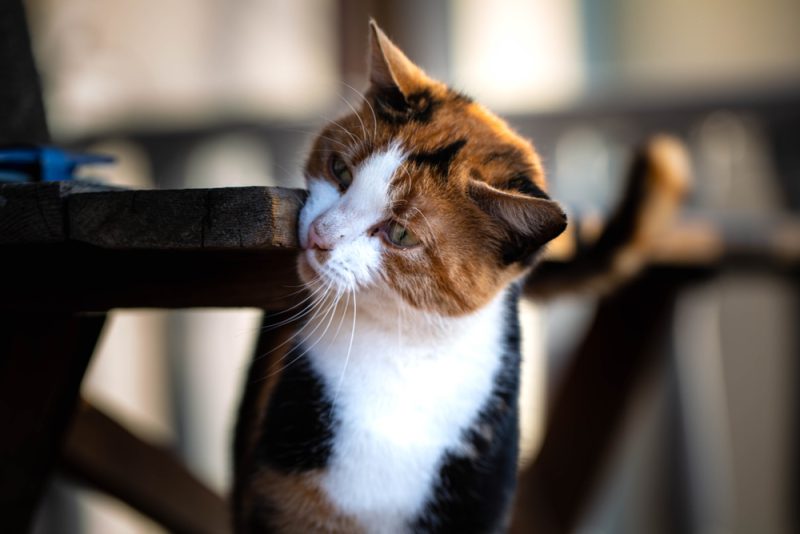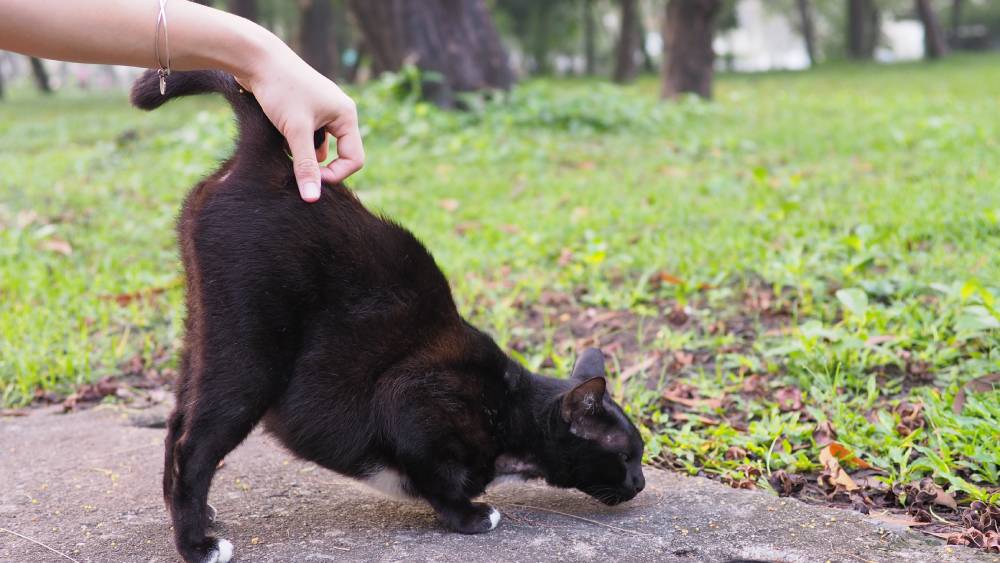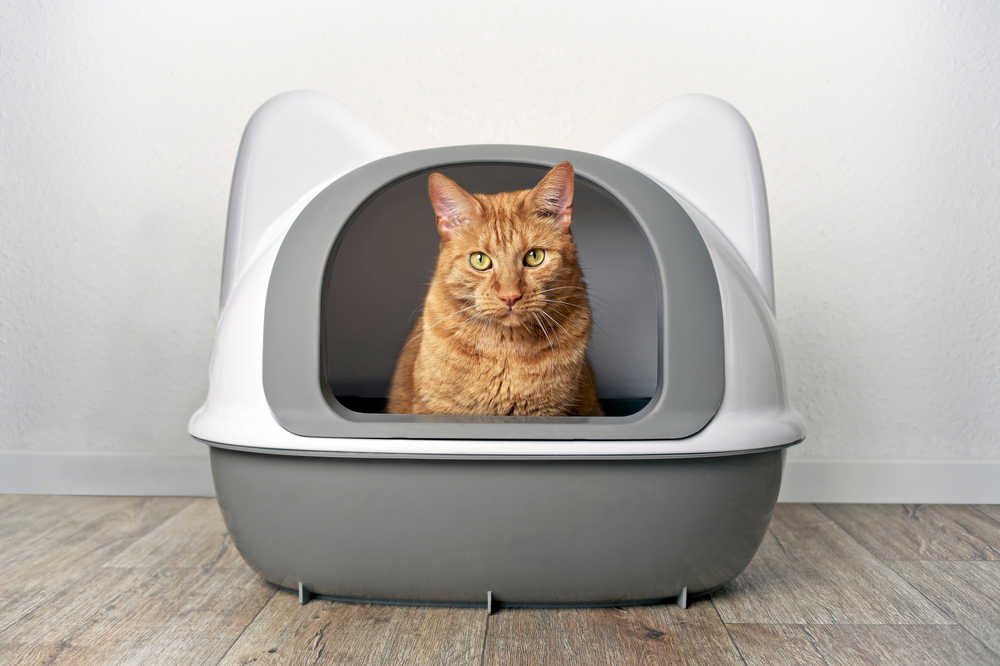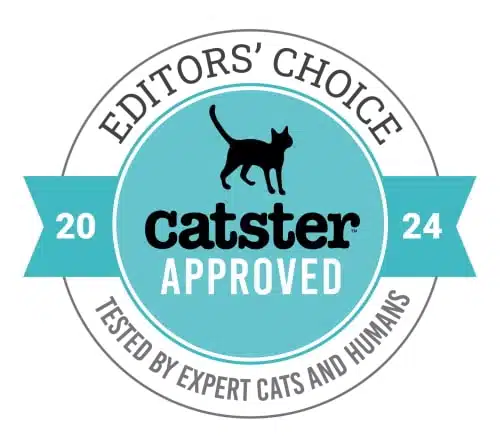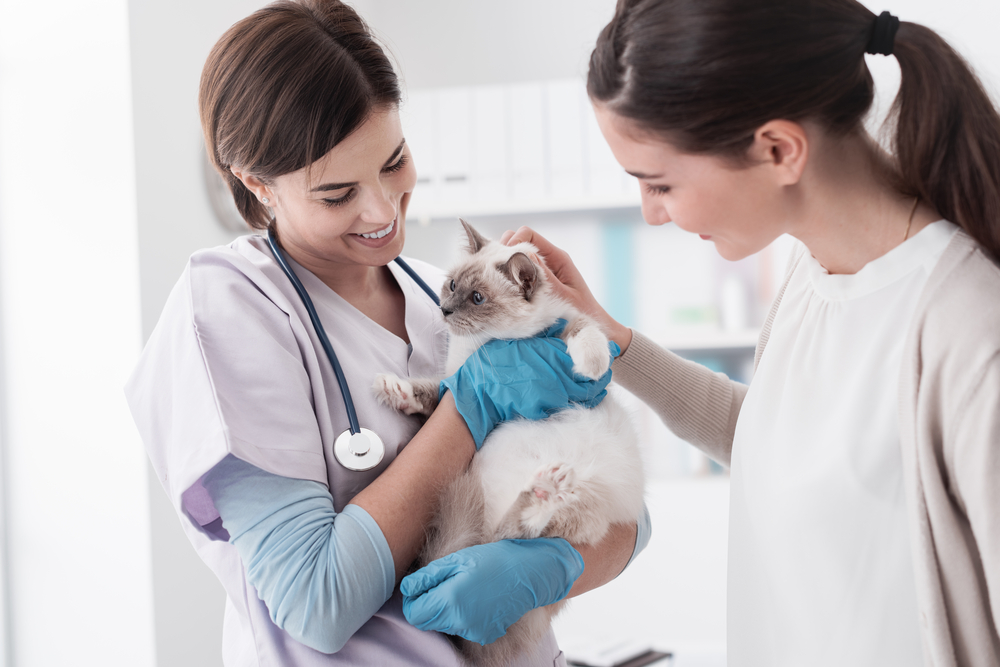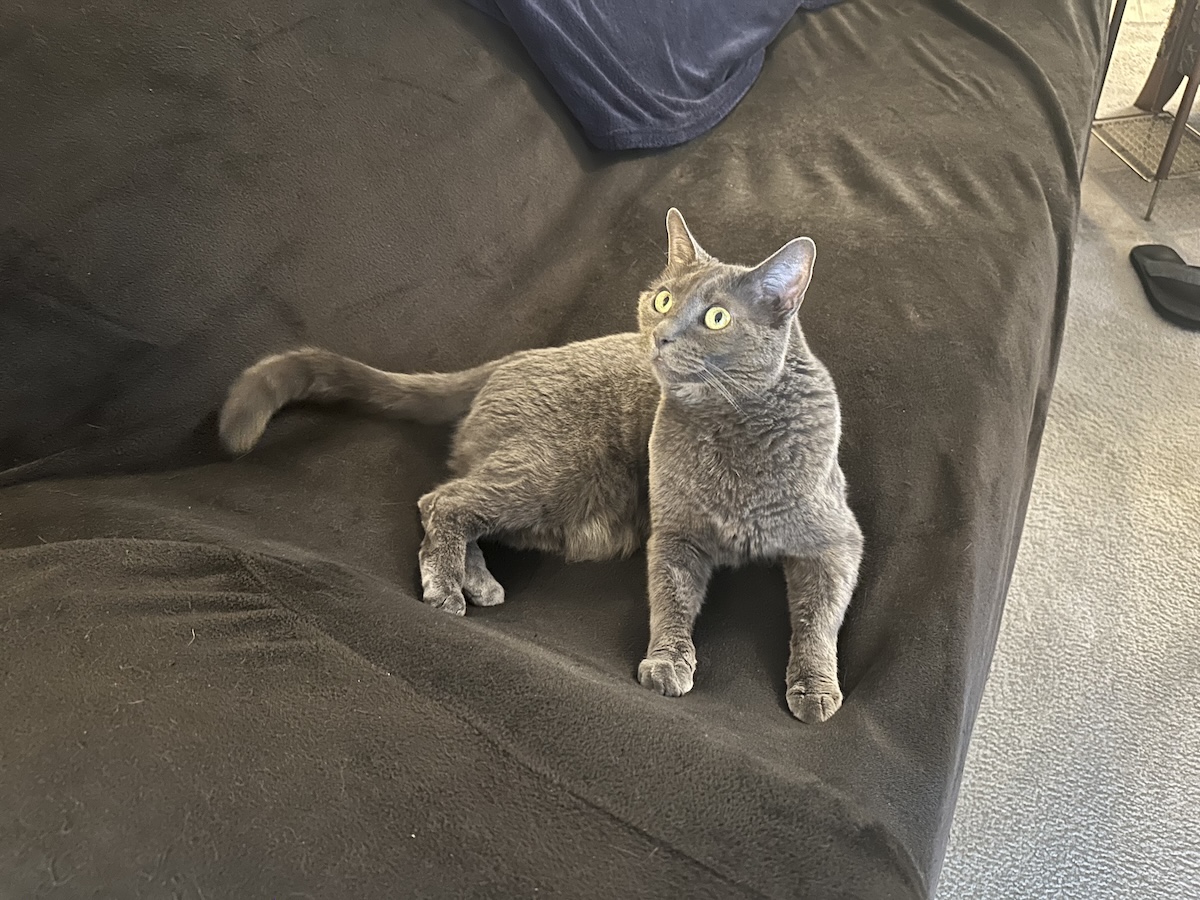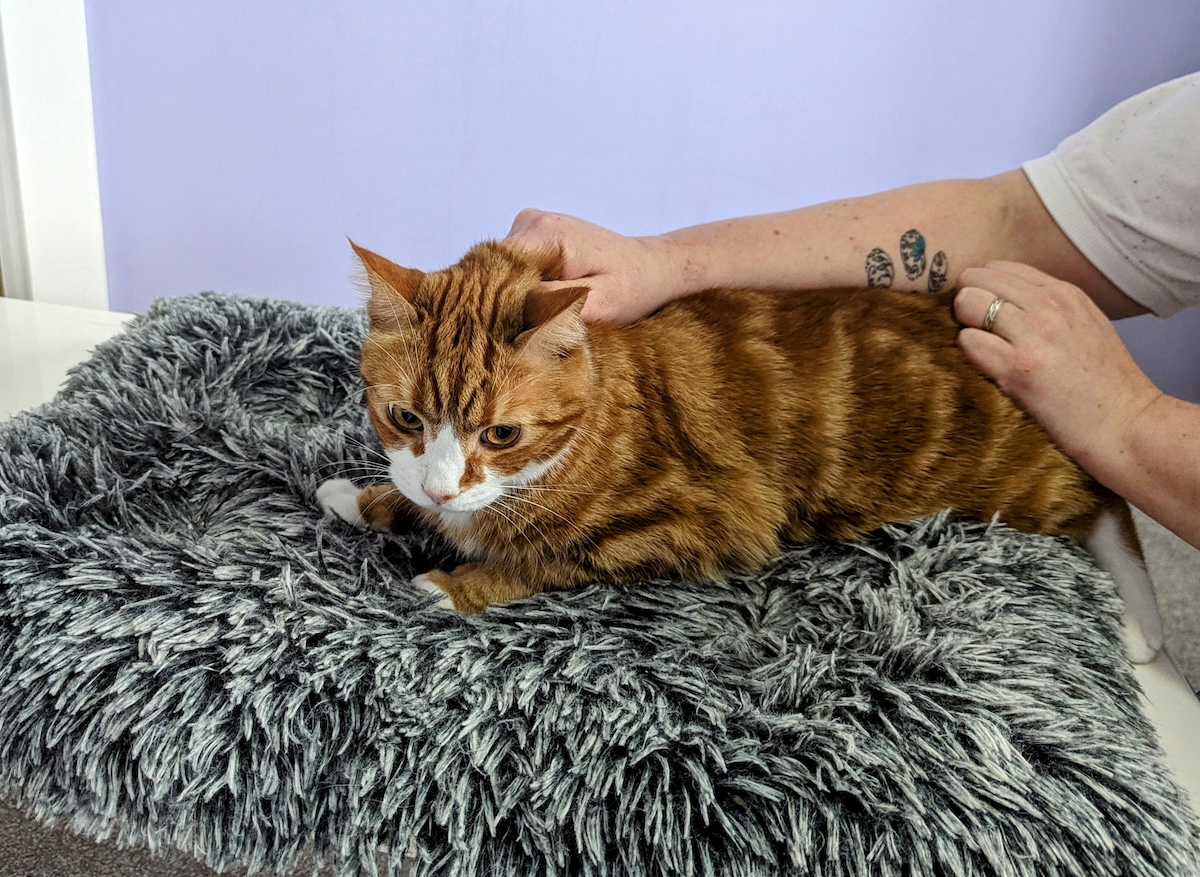Cats often engage in behaviors that leave us feeling puzzled or confused. Even though we might find them to be strange, many of these behaviors are normal for cats. New cat owners may be surprised by just how much their cats will rub their faces against corners, objects, and even people. However, this action is common feline behavior, and you don’t usually have to be alarmed by it.
While it’s not completely certain why cats will rub their cheeks against corners, cat behaviorists and experts do share a few common speculations. Here are a few possible reasons why your cat may rub their face on corners.

The 5 Reasons Why Cats Rub Their Faces on Corners
1. Marking Territory
One of the most widely accepted theories for cats rubbing their faces on corners is that they’re leaving their scent on objects. Cats use scents to communicate, and they have scent glands located around their cheeks. When cats rub their faces on objects, they leave behind a scent that other cats can detect. Cats can pick up information about other cats when they sniff these scents.
Cats may tend to prefer rubbing their cheeks against corners because corners provide the best grip for them. Rubbing their faces against flat walls can be more difficult, so they’ll usually opt for wall and furniture corners.
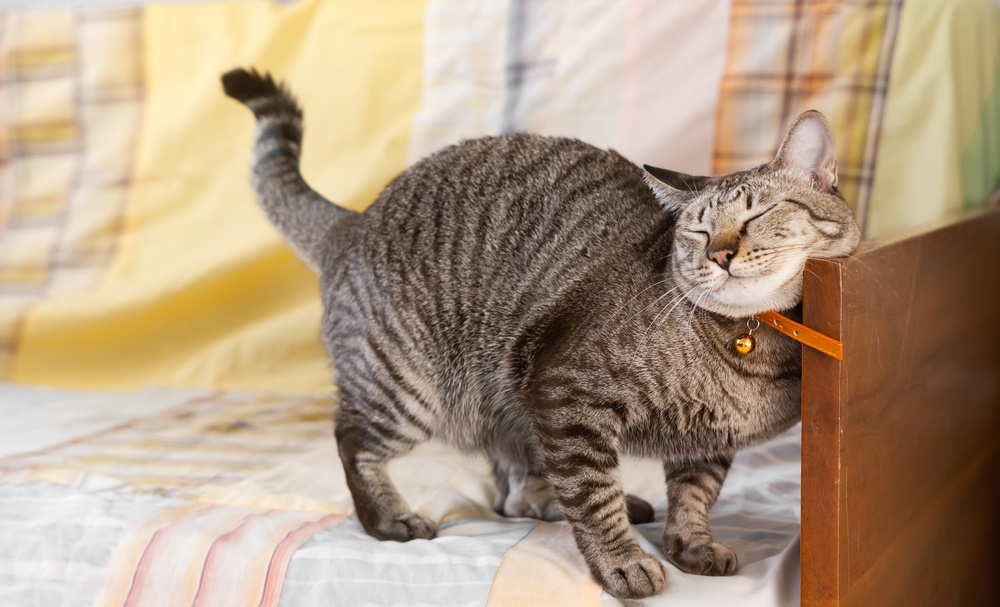
2. Greeting
It’s common for cats to greet each other by rubbing their faces. This behavior enables them to exchange scents and learn more about each other. If your cat starts to feel comfortable and likes you, they can start to rub their cheeks against you as soon as you return home to them. You can take this as a sign that your cat is greeting you and wanting to let you know that they like that you’re home.
It’s important to note that not all cats will engage in this behavior with humans. So, you don’t have to be too concerned if your cat doesn’t rub their cheeks against you. They’re probably showing you love and affection through other means and expressions.
3. Wanting Attention
Cats are observant animals and are quick to know what sorts of behaviors grab your attention. Therefore, if you have a habit of giving your cat attention when they rub against you, they’re more likely to continue this behavior. This behavior is reinforced each time you acknowledge your cat when they rub their face against you. Consequently, many cats will start to rub their cheeks against their owners when they’re bored, hungry, or feeling lonely.
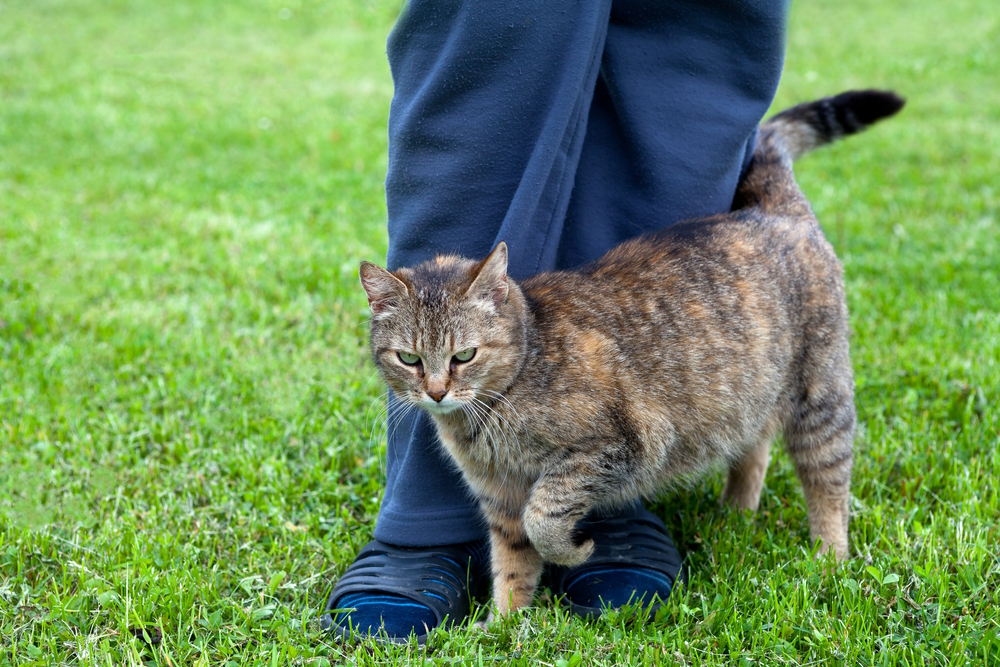
4. Showing Affection
Your cat may also rub their cheeks against you as a means of showing affection. Similar to marking territory, cats leave their scent on people by rubbing their cheeks against them. Rather than seeing it as possessiveness, you can receive this behavior as a compliment. Cats won’t rub their cheeks against people they don’t trust or don’t like. So, you can take it as a sign that your cat likes you and sees you as one of their own if they start to rub their cheeks against you.
5. Stress Relief
The act of rubbing faces against something often feels comforting and relaxing for cats. So, they may engage in this behavior when they want to relax or self-soothe. Sometimes, cats will begin to rub their faces against something when they’re feeling stressed or anxious and want to calm down.
Cats also usually start to rub their cheeks against things when they settle down and feel comfortable in a home. In this context, you can take this behavior as a good sign that indicates your cat acknowledges that your home is also their home.
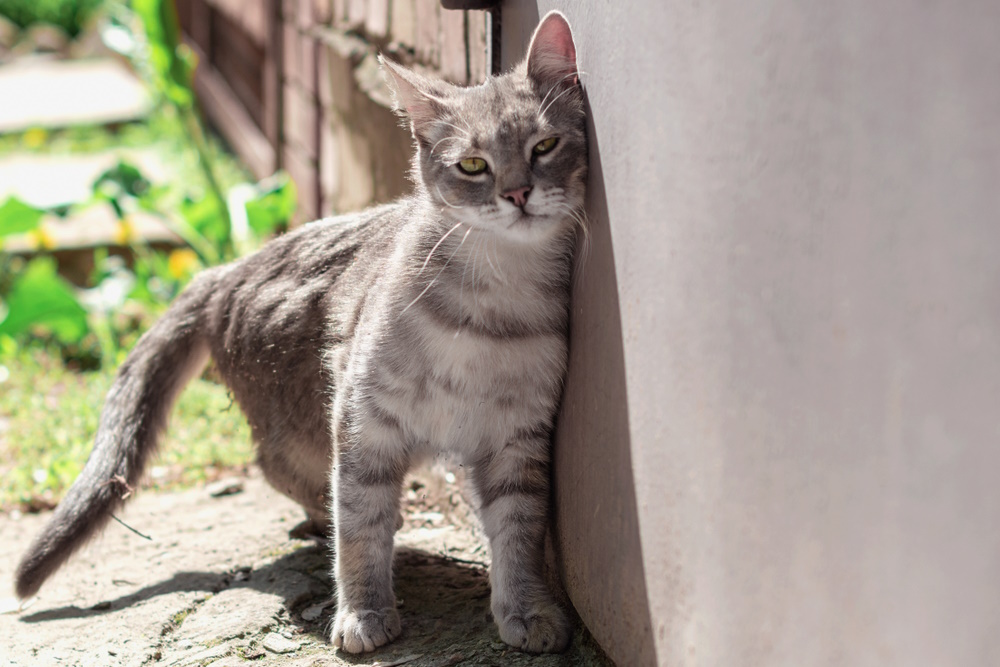
Is It Bad if My Cat Rubs Their Faces on Everything?
While rubbing faces on objects and people is common behavior in cats, there are some cases when it can indicate an underlying problem. Sometimes, rubbing faces can become a compulsive behavior, which is usually caused by a disease or mental health issue. For example, cats can start to rub their faces and press their head against things repeatedly when they have trauma to the head or nervous system, encephalitis, or tumors. Cats may also resort to compulsive head pressing if they’re under a lot of stress or have anxiety.
Compulsive behavior of this sort is also often accompanied by other signs. Your cat may also display increased pacing or circling. They may also become disoriented or lack coordination. Sometimes, you might notice sudden changes in mood or behavior.
If you suspect your cat’s behavior is abnormal, it’s best to contact your veterinarian right away for a physical examination. Your veterinarian can diagnose the cause of the behavior and provide the appropriate treatment.
If you need to speak with a vet but can’t get to one, head over to PangoVet. It’s an online service where you can talk to a vet online and get the personalized advice you need for your pet — all at an affordable price!


Conclusion
For the most part, you don’t have to worry if your cat is rubbing their face against corners and other objects. In fact, you can take it as a compliment if your cat starts to rub their cheeks against you. If you do notice that your cat is starting to rub their face against things much more frequently or notice other changes in their behavior, don’t hesitate to consult your veterinarian to determine what’s causing these changes.
Featured Image Credit: Maria Wan, Shutterstock

